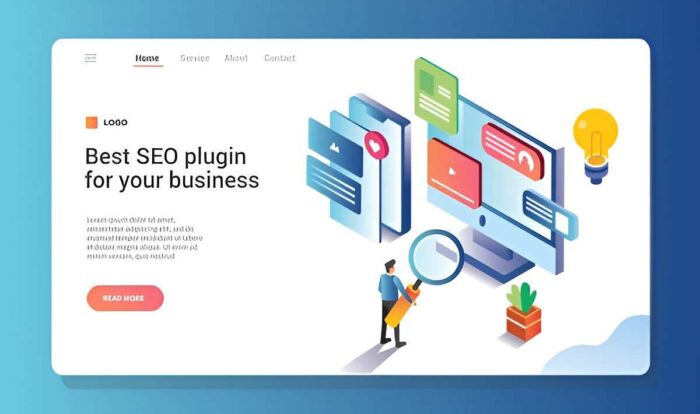The world of online commerce has grown remarkably in recent years, and finding the right tools to power your e-commerce website is essential for success. E-commerce plugins have become indispensable for businesses aiming to offer seamless shopping experiences. From handling payments to managing inventories, these plugins address a variety of needs. Having tested and analyzed numerous e-commerce plugins, I’ll share my insights, breaking down the features, strengths, and potential drawbacks of each.
What Are E-commerce Plugins?
E-commerce plugins are tools you add to your website to provide online shopping functionalities. They’re often designed for platforms like WordPress, Shopify, or Magento. Depending on your needs, plugins can handle:
- Payment gateways
- Shipping options
- Inventory management
- Customer analytics
- Marketing campaigns
Selecting the right plugin can save you time, money, and effort. But with so many options available, where do you start?
Key Features to Look for in an E-commerce Plugin
Before diving into individual plugins, let’s outline some must-have features:
- Ease of Use: Does the plugin integrate easily into your website, and is the interface user-friendly?
- Payment Gateway Compatibility: Does it support popular payment options like PayPal, Stripe, or local alternatives?
- Scalability: Can it grow with your business?
- Security: Are customer data and transactions secure?
- Support: Is customer support readily available if issues arise?
Top E-commerce Plugins to Consider
To make things easier, I’ve categorized plugins based on their strengths. Here’s a breakdown:
1. WooCommerce
WooCommerce is the go-to plugin for WordPress users. It’s free, highly customizable, and supported by a vast community.
Features:
- Integration with WordPress themes.
- Support for multiple payment gateways.
- Extensions for added functionality, like subscriptions and bookings.
Pros:
- Open-source and cost-effective.
- Scales well with growing businesses.
Cons:
- Requires technical knowledge for advanced customization.
Best For: Small to medium-sized businesses.
| Feature | WooCommerce |
|---|---|
| Price | Free (with paid extensions) |
| Payment Gateways | Multiple supported |
| Customization | High |
| Scalability | Excellent |
2. Shopify App Store Plugins
Shopify, a leading e-commerce platform, offers a suite of plugins through its app store. It’s an all-in-one solution ideal for those who don’t want to manage hosting and development.
Features:
- Drag-and-drop store builder.
- Access to marketing tools like email campaigns.
- Inventory and order management.
Pros:
- Easy to set up and use.
- Excellent customer support.
Cons:
- Monthly subscription fees.
Best For: Entrepreneurs and small businesses.
| Feature | Shopify |
|---|---|
| Price | Subscription-based |
| Payment Gateways | Native + External |
| Customization | Moderate |
| Scalability | Good for small/medium businesses |
3. BigCommerce
BigCommerce is another fully hosted solution, competing closely with Shopify. It’s known for its robust built-in tools.
Features:
- Built-in SEO tools.
- Multichannel selling (Amazon, eBay, Facebook).
- Comprehensive analytics dashboard.
Pros:
- No transaction fees.
- Includes advanced features at no extra cost.
Cons:
- The interface can be overwhelming for beginners.
Best For: Medium to large-sized businesses.
| Feature | BigCommerce |
|---|---|
| Price | Subscription-based |
| Payment Gateways | Wide range |
| Customization | Limited without coding |
| Scalability | Excellent for larger stores |
4. Easy Digital Downloads (EDD)
If your business focuses on selling digital products, EDD is a fantastic option.
Features:
- Optimized for digital goods.
- Supports recurring payments.
- Flexible reporting and data tracking.
Pros:
- Lightweight and fast.
- Highly focused on digital product needs.
Cons:
- Limited functionality for physical goods.
Best For: Digital product sellers.
| Feature | Easy Digital Downloads |
|---|---|
| Price | Free (with extensions) |
| Payment Gateways | PayPal, Stripe |
| Customization | High |
| Scalability | Great for niche markets |
5. Magento Plugins
Magento, an enterprise-level platform, offers plugins to enhance functionality. It’s a powerhouse for large-scale e-commerce stores.
Features:
- Advanced inventory management.
- Highly customizable.
- Supports multiple stores and languages.
Pros:
- Highly scalable.
- Enterprise-level performance.
Cons:
- High cost and technical complexity.
Best For: Large-scale businesses.
| Feature | Magento |
|---|---|
| Price | High-cost |
| Payment Gateways | Multiple supported |
| Customization | Very high |
| Scalability | Ideal for enterprise |
Comparison Table for Popular Plugins
| Plugin | Best For | Price | Ease of Use | Scalability |
|---|---|---|---|---|
| WooCommerce | Small/medium businesses | Free (paid extensions) | Moderate | Excellent |
| Shopify | Small businesses | Subscription-based | High | Good |
| BigCommerce | Medium/large businesses | Subscription-based | Moderate | Excellent |
| Easy Digital Downloads | Digital product sellers | Free (paid extensions) | High | Great for niche |
| Magento | Large enterprises | High-cost | Low | Outstanding |
How to Choose the Right Plugin
Choosing an e-commerce plugin depends on your business needs. Here’s how I approach it:
- Assess Your Budget: Determine how much you can spend, including hidden costs like extensions.
- Understand Your Target Audience: Different plugins cater to varying needs. For example, a niche market might require features specific to digital downloads.
- Consider Long-Term Goals: Look for plugins that grow with your business.
- Evaluate Support Options: Having reliable support is critical for uninterrupted service.
SEO Tips for Optimizing Your E-commerce Plugin
Once you’ve selected a plugin, ensure your website is optimized for search engines. Here are some tips:
- Optimize Product Pages: Use relevant keywords in titles, descriptions, and image alt text.
- Enhance Site Speed: Choose lightweight plugins to improve load times.
- Mobile Responsiveness: Ensure your plugin supports mobile-friendly designs.
- Set Up Analytics: Use tools like Google Analytics to monitor traffic and user behavior.
Final Thoughts
E-commerce plugins are vital tools for online businesses. The key to success lies in choosing a plugin that aligns with your goals, budget, and technical capabilities. Whether you’re starting small or scaling up, there’s a plugin out there to meet your needs. By focusing on features, security, and user experience, you can create a thriving online store.





